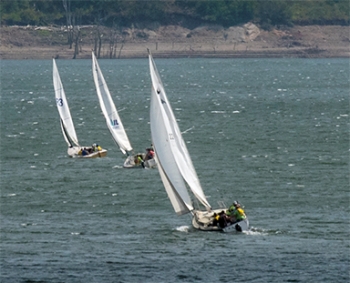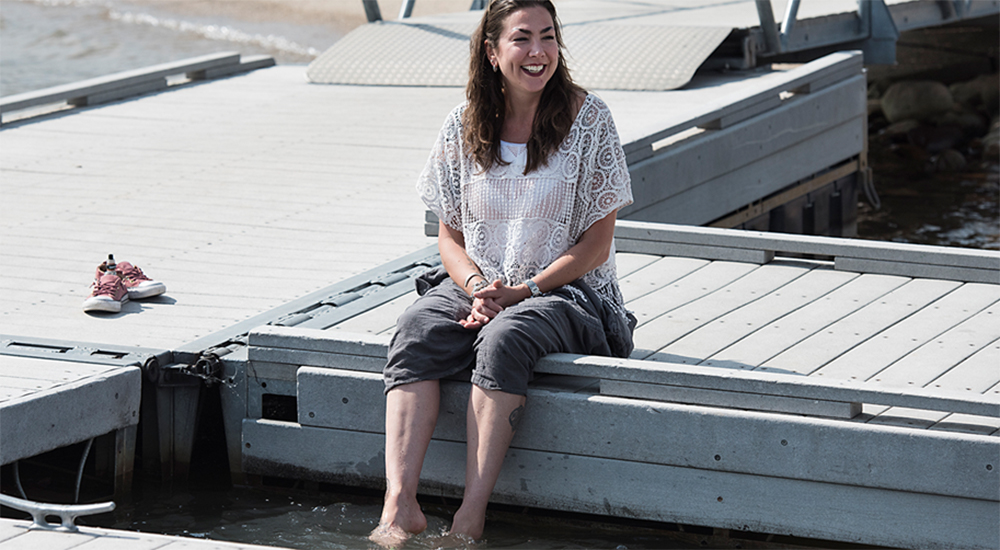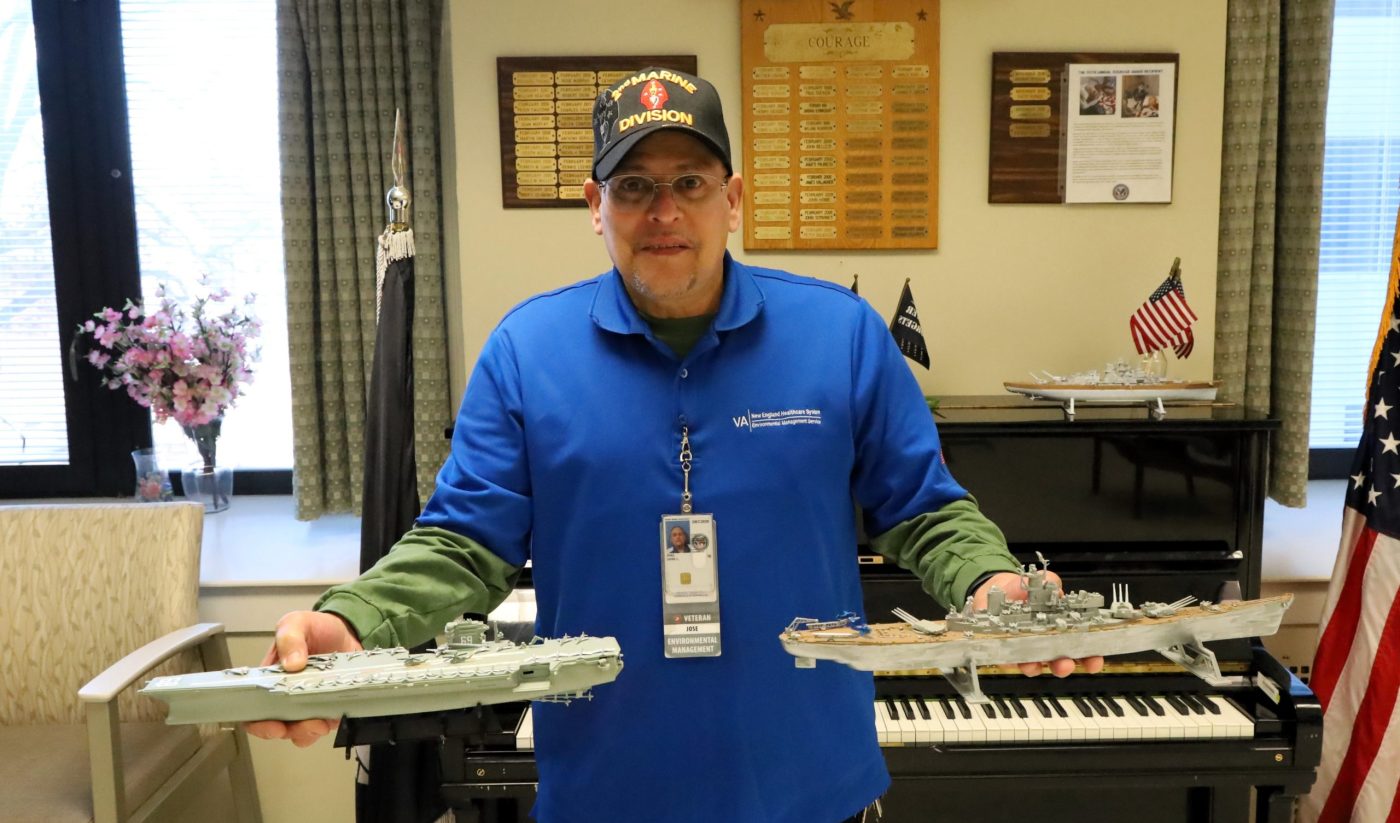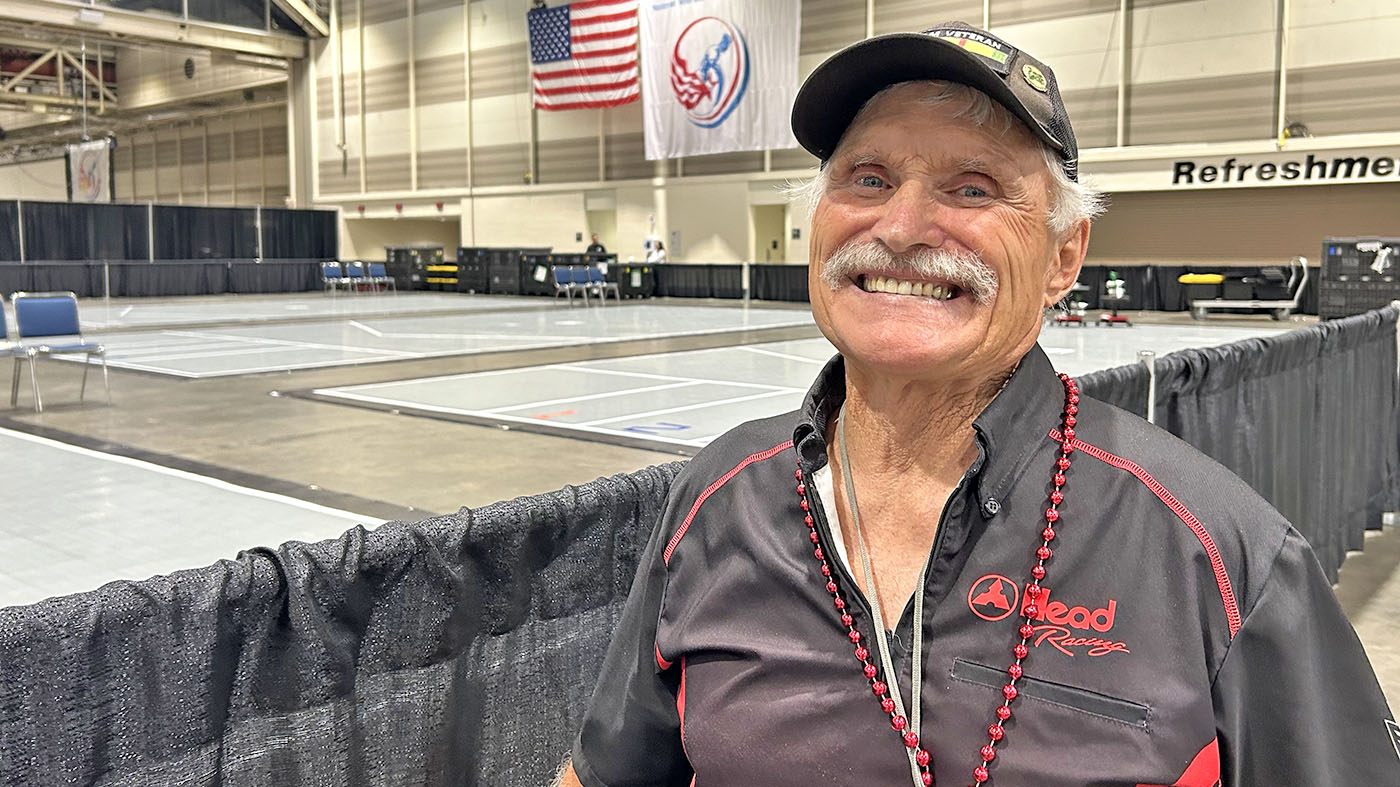Army Veteran Kristine Bean remembers the noise the most: The constant sounds of rockets, mortars, tracers and nighttime firefighting filling the skies during her deployment at Camp Slayer, a U.S. base near the international airport in Iraq’s capital, Baghdad.
The blasts rang in her head for extended periods. “It was all kinds of bullets flying all night,” she said.
Bean has since been diagnosed with PTSD and depression. She maintains weekly contact with a therapist at VA Salt Lake City. She has taken part in cognitive processing therapy, one of the main trauma-focused psychotherapies VA uses to treat patients with PTSD.
VA psychiatrist leading studies on complementary therapies
Two years ago, Bean participated in a complementary therapy. She signed up for a study that focused on mindfulness training and sailing for Veterans with PTSD, substance use disorder and other mental health conditions.
Mindfulness involves focusing on the present moment while calmly acknowledging and accepting one’s feelings, thoughts and bodily sensations.
Walking, hiking, meditation and yoga can help someone achieve a state of mindfulness. Any other type of sport or recreational activity can, too, if one is focused on the present.
Dr. William Marchand, VA Salt Lake City psychiatrist, led the study, which involved three one-hour classes of mindfulness training, followed by one-hour sailing sessions on Deer Creek Reservoir at Jordanelle Reservoir State Park in Utah.

Dr. Marchand’s study on sailing as a recreational therapy included 25 Veterans. Each had had at least one mental health condition or substance use disorder.
Many Veterans with mental conditions and substance use disorders do not experience full remission from conventional treatments or engage in complementary therapies, such as sailing.
Marchand and VA colleagues are testing recreational programs that would encourage participation by offering an enjoyable experience while imparting a therapeutic benefit.
“You focus on the moment you’re in.”
Bean found the mindfulness training, which involved periods of meditation, to be very helpful.
“It seemed like a training of being in the present, recognizing your thoughts wandering, and refocusing them on what you want, instead of what just happened to come to mind,” she said. “It’s more a matter of being able to train yourself to recognize thought patterns that you didn’t want to dwell on and refocus on what you’re doing in the present. You focus on the moment you’re in. We also practiced breathing techniques.”
When asked if she’s applied what she learned through the mindfulness training, Bean says “100% yes.”
“It felt like someone had given me a tool to use when I have anxiety issues, so it’s been good,” she added. “It seemed like the majority of Veterans in the study were enjoying the mindfulness training and the sailing.”
Veteran to interact with horses as a form of therapy
People with PTSD can have a number of distressing and persistent symptoms, including re-experiencing trauma through flashbacks or nightmares, and emotional numbness.
They can also have sleep problems, difficulties in relationships, sudden anger, and drug and alcohol misuse.
Depression is one of the most prevalent mental health conditions found among Veterans and often co-occurs with PTSD.
In the coming weeks, Bean plans to take part in a William Marchand-led study. She’ll focus on equine services, or interaction with horses, as the complementary therapy.
“Dr. Marchand is a great instructor for meditation and mindfulness,” Bean said. “I saw his name and signed up because I think he’s a brilliant doctor. I would recommend his recreational therapies to other Veterans with PTSD.”
Topics in this story
More Stories
One strategy credited for the improvement is a focus on building trust and stronger patient-provider relationships.
Army and Marine Corps Veteran started making models after being hospitalized at Connecticut VA.
Veteran Hank Ebert is a bit of a superstar in the National Veterans Wheelchair Games. He has been attending since 1993.







And I am a war veteran I have PTSD I deal with many problems I have physical problems I don’t know where to go sometimes but since I’ve been educated with mindfulness CBT and all those other classes that I’ve taken in the VA that have been very very helpful I’ve managed to survive but it’s still there and I need help and keep Keep us educating us and communicating with our veterans God bless
I’ve had PTSD since since Desert Storm and just now after knowing about it for years finally started mindfulness and the difference is amazing its like I took back my life . I do take meds yes antipsychotics ,it’s ok to have to do that at times but mindfulness is a whole different vibe , it has saved my life a few times . if I had a stamp ide give it approval.
Trash
I agree focus on moment leave the past be history. I am 77 years young.My husband did 2 tours in Nam.He became a neurotic cop.Keep the past out. Mindfulness is a daily progress no matter who or what.Keep focused and do what makes you happy.